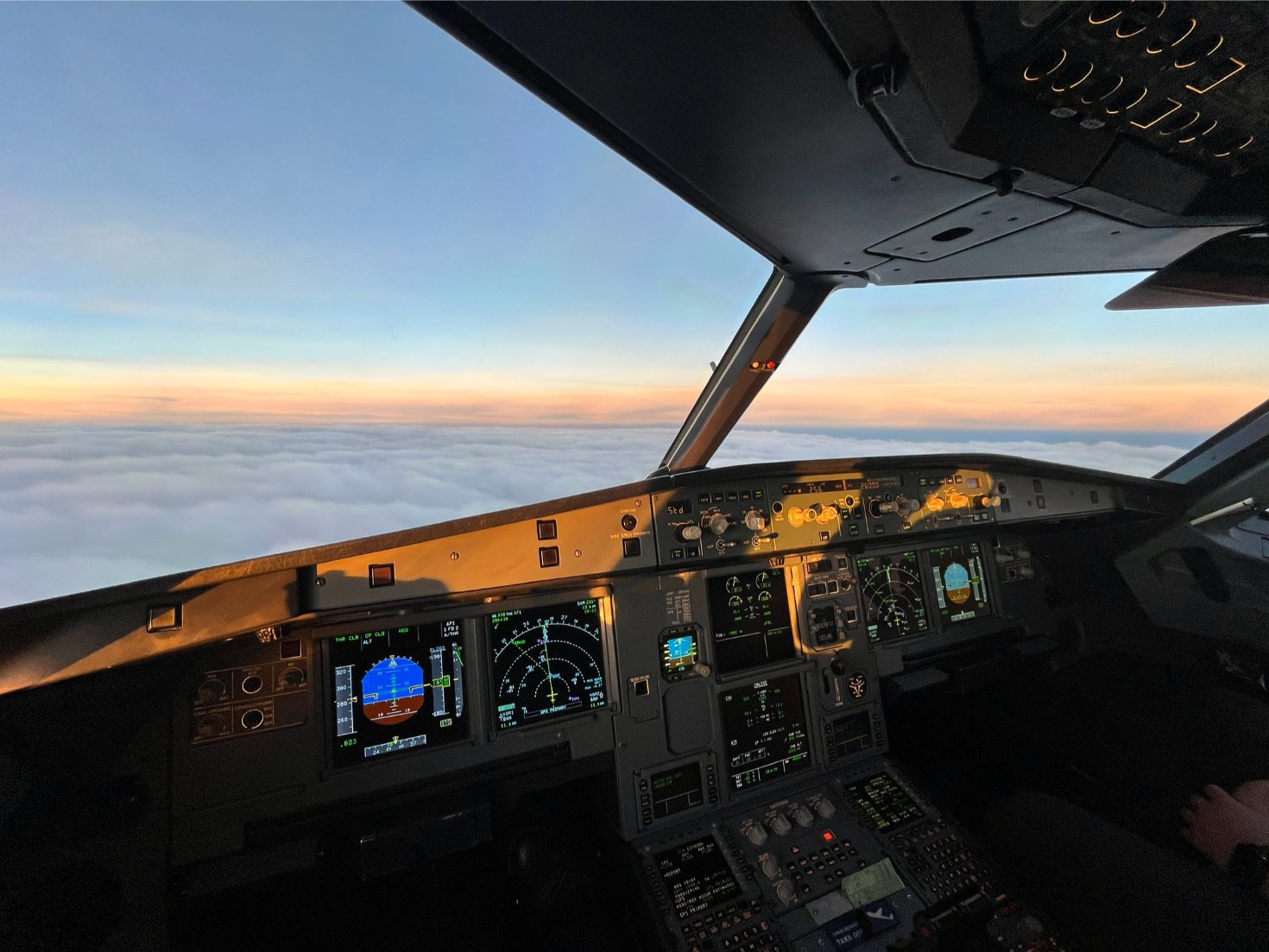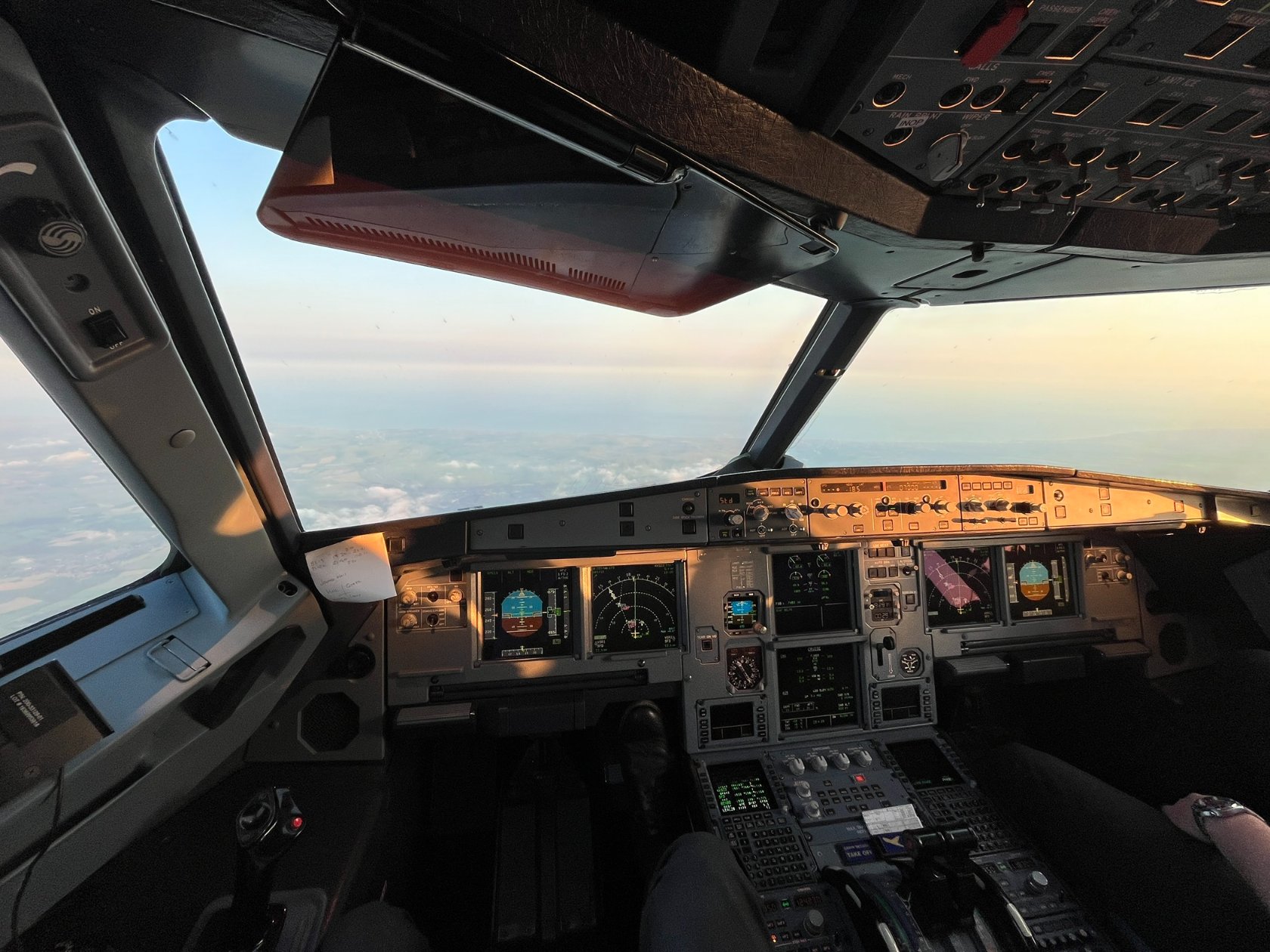
Airport Closure & Failure Management
A day filled with decisions, delays and expectation management. Another insight into what the daily life of an airline captain really consists of…
Share Post
Until I became a pilot, I also had no idea what went on behind that locked cockpit door during long flights. I’m about to spill the beans!
It’s easiest to separate what we do into two categories;
We are almost constantly monitoring the following
We monitor fuel to check whether we’re still ‘on plan’ i.e how much fuel we’re predicted to have here according to our flightplans. This can give an early indication of a fuel leak, or any unforecast adverse winds that could leave us arriving at our destination with less than we’d hoped.
Weather wise, we need to constantly make sure we have a suitable airport to dive into at any stage of the flight should an emergency issue occur, so we constantly check weathers as we go. We also need to check we’re still able to make an approach into our destination, and that our alternate is also still viable.
We have to check in & out of each sector of airspace we fly through. Whilst this seems like a faff, it’s pretty important and if we don’t, we’ll end up with fighter jets on our wingtips.
As we fly we are constantly listening on the radios for our callsign, and they’ll usually just be telling us to tune the next frequency and check in again.
Nowadays, we have a clever bit of kit called CPDLC –
Controllers can send a message to us in text form, which we can accept and send confirmation that we’ve received it. It’s all in an effort to reduce voice communication and therefore make the radio quieter and increase everyones capacity.
In Summer, most flights across Europe will necessitate flying around a big storm cloud. Unfortunately our planes can’t do this themselves yet so we have to manually change the track and liaise with ATC as we do it.

Turbulence is also a common phenomenon – probably more common than you think. The reason it may seem uncommon to passengers is that pilots are constantly monitoring the turbulence at other flight levels, mainly through what’s predicted in the flight-plans, and also listening to other aircraft infront of us giving reports. We’ll often try and sit at a few different flight levels until we find the most comfortable one, and often take fuel to enable us to fly at a smoother lower level than our planned level if we expect it to be turbulent.
Although the route is inputted into the plans computer before we depart, ATC often require us to change track, speed or height for other reasons. They can also give us shortcuts!! For these we manually override the planned route.
Now the fun part…..what do we do we’re not doing all the above?!
Well….
More often than not, you’ve never met the person sitting next to you before. Whilst this can mostly make for lots of small talk, it can sometimes make for really interesting conversations too and very occasionally really deep connections with people.
I often say the flightdeck can be like a therapy box…..you’re locked in a room with someone you’ve never met and will likely never meet again. It’s a place where some people bring their problems, others open up about feelings, and you can usually get an unbias view on things.
Although lots of things in our proffession negatively impact mental health, I think the ability to talk to someone here is a big positive.
The most important one by FAR!
We eat. A lot. Contrary to logic, when you’re extremely sedentry without too much to do, it’s pretty natural to want to eat, eat and eat.
We get supplied some food by our airlines – some could compare to military rations….but I tend to steer clear as I don’t want a heart attack at 35, so I bring my own food in.
During quiet times, pilots will often read. This could be flying related material i.e the manuals, but in an effort not to be sent to sleep…..some people read the newspaper or their own book.
Yes, we do sleep whilst on duty. Never at the same time, and never for long. It’s always communicated to the Cabin Crew when one pilot is about to take ‘controlled rest’ so they are aware and will make sure they phone us. One pilot will nap for a 20 minute period whilst the other assumes responsibility for both pilots jobs….which is no issue during quiet times.
It’s been scientifically proven that these naps can make us more alert for when we need to commence an approach and landing, and to be totally honest they are a necessity given our rosters.
On short haul flight, with the cockpit being as cramped as it is, we take the nap right in our seats.
On long haul flights, the crew may have the benefit of ‘cruise pilots’ meaning the flight crew can go back into the crew bunks and get a proper sleep before coming back to the controls. They are not limited to our 20 minute nap period.
One that some pilots often forget to do. The views we get are extremely special. From crossing the Alps during sunrise, to gazing up at the night sky from 37000ft….I’m still not tired of looking out the window in awe and really hope others don’t take it for granted too much either!
We’re human too! This actually gives us a good excuse to stretch our legs for a few minutes too, interact with the cabin crew & occasionally with passengers.
Hopefully the above has given those wondering a better idea of what pilots get upto on longer flights. The flying duties obviously have total priority, but when they are taken care of, there’s plenty of time left to fill with other things!


A day filled with decisions, delays and expectation management. Another insight into what the daily life of an airline captain really consists of…

It’s a Sunday morning and I’m jolted awake by the piercing sound of my phone ringing at 5am for what is going to be (unbeknown to me at this point) a whopping 16+ hour duty day…
Copyright © 2024 Pilot Bible